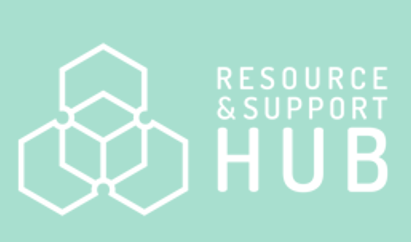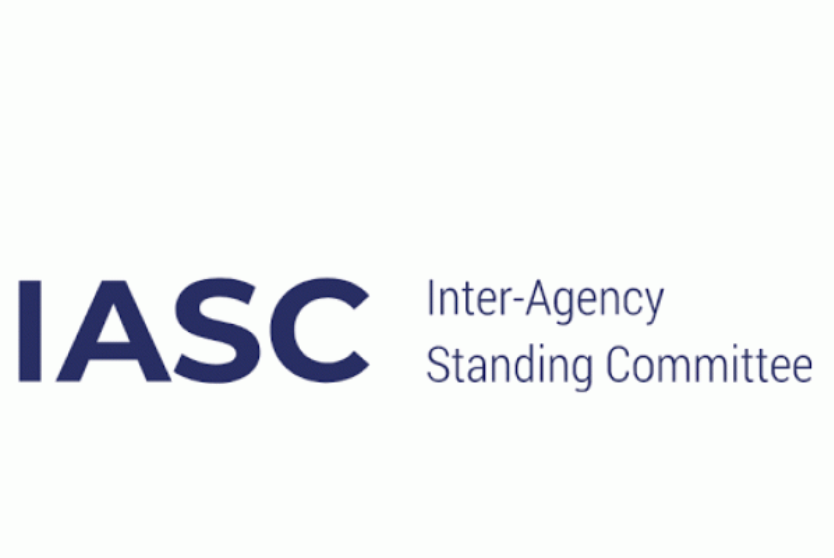Other resources:
- Insecurity Insight
- Humanitarian Women’s Network
- Bond Safeguarding Guidance and Tools
- Resource and Support Hub
Resources
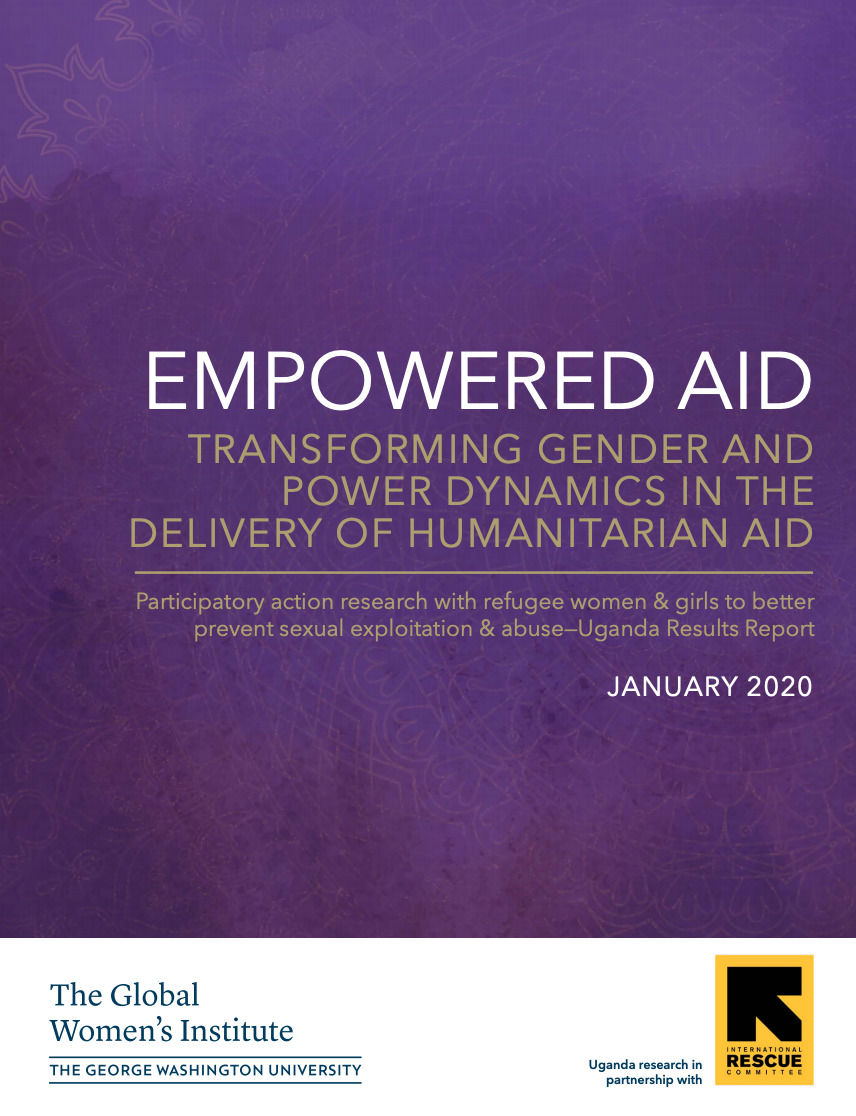
Empowered Aid: Participatory action research with refugee women & girls to better prevent sexual exploitation & abuse | Uganda Country Report
This report shares findings from the first phase of Empowered Aid in Uganda around risks of sexual exploitation and abuse in relation to food, WASH, shelter, and fuel & firewood, throughout the distribution process.
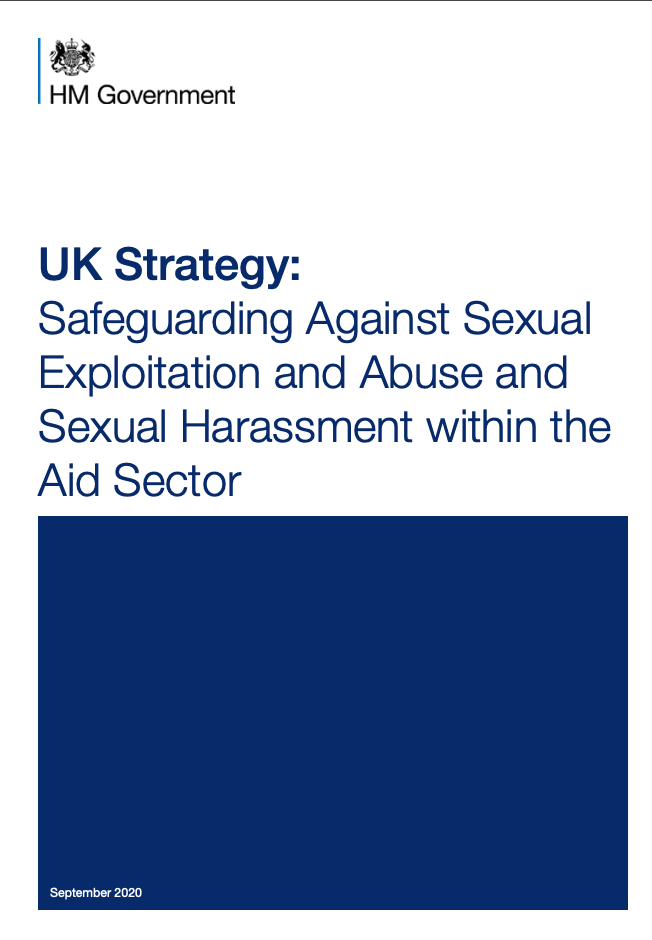
UK Strategy: Safeguarding Against Sexual Exploitation and Abuse and Sexual Harassment within the Aid Sector
UK Strategy on safeguarding against sexual exploitation and abuse and sexual harassment (SEAH) sets out the actions the UK is taking across all government departments which engage in delivering Official Development Assistance (ODA)
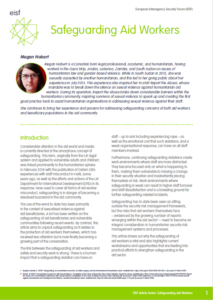
Safeguarding Aid Workers
This GISF article by Megan Nobert, founder of Report the Abuse, explores the safeguarding of aid workers.

Safeguarding Humanitarianism in Armed Conflict: A Call for Reconciling International Legal Obligations and Counterterrorism Measures in the United States
This report, published by the Charity and Security Network, calls for greater reconciliation between US counterterrorism measures (CTMs) and the international humanitarian obligations of the US. The report discusses the challenges to humanitarian action posed by CTMs, and presents the arguement that, when applied to aid agencies, counterterrorism legislation constitutes a violation of international humanitarian obligations of the US.
‘Safeguarding’ as humanitarian buzzword: an initial scoping
This research article explores the framing of 'safeguarding' as a buzzword: about what buzzwords do, whether safeguarding is a global buzzword, whether it is a reframing of old concerns and historical accountability efforts, what is new about it—and finally, what kind of reflections and responses this newness should engender.
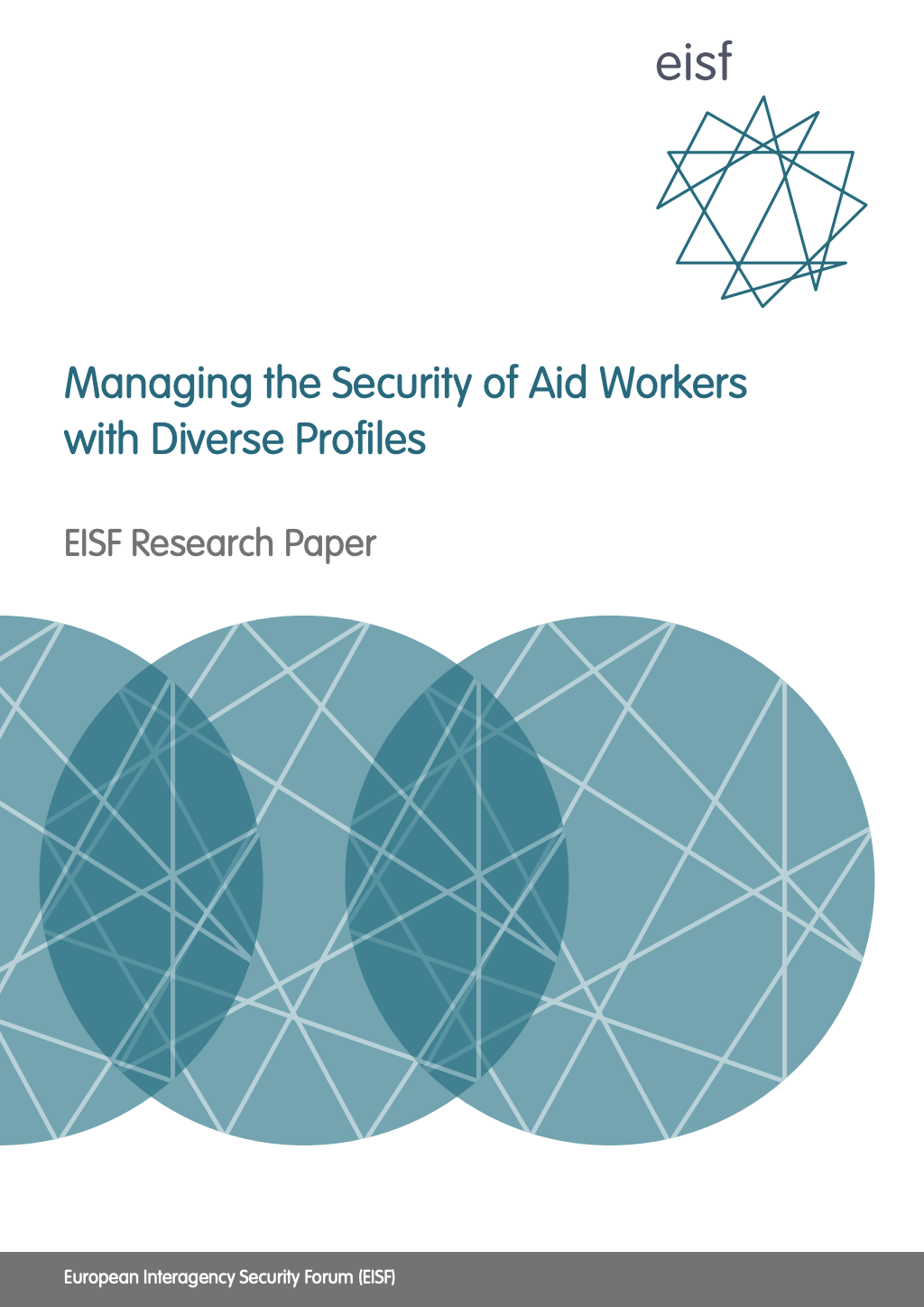
Managing the Security of Aid Workers with Diverse Profiles
This GISF research paper aims to better understand what challenges aid organisations face in relation to managing the security of aid workers while being mindful of their diversity.
Diverse, Inclusive and Safe
This blog by Richard Chapman-Harris raises a key consideration for humanitarian organisations operating in high-risk countries: What does equality, diversity and inclusion mean for security risk management? Do they relate? Do they contradict each other? In his blog, Richard shares some key steps that organisations can take to be more inclusive and diverse while still ensuring staff security. Within humanitarian organisations, the diverse profiles of staff can affect these individuals’ risk profile and present both challenges and opportunities in relation to their safety and security.
Building an Inclusive Security Risk Management Culture: Musings of the GISF Director
On World Humanitarian Day 2018, GISF's Executive Director, Lisa Reilly, considers how NGOs can build a more inclusive security risk management culture.
ACT Gender Security Guidelines
ACT has developed these gender security guidelines to support the security of men, women and LGBTI staff.
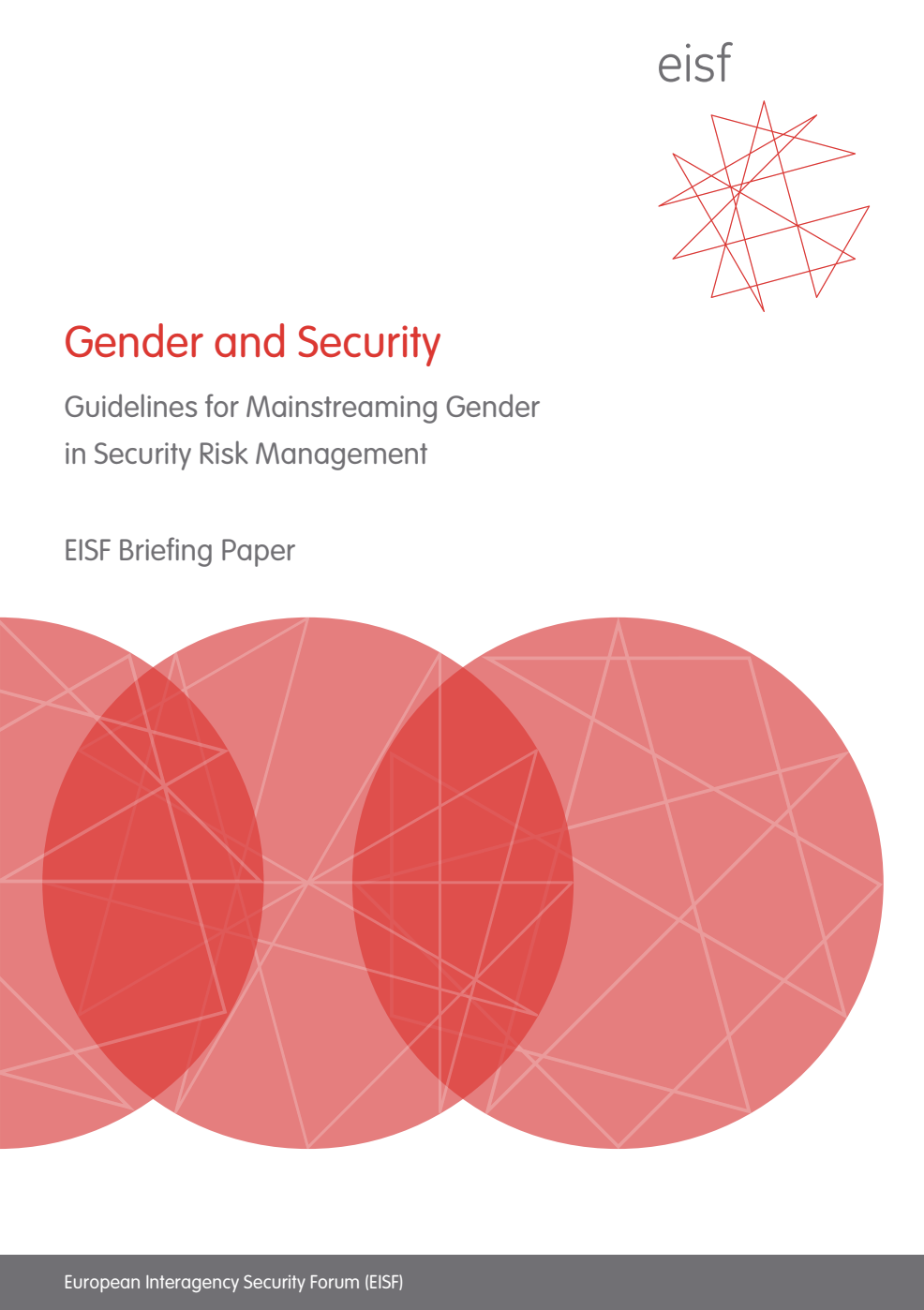
Gender and Security: Guidelines for mainstreaming gender in security risk management
The aims of Gender and Security: Guidelines for Mainstreaming Gender in Security Risk Management are twofold: to raise general awareness about gender and how it relates to security risk management, and to provide practical tools for effective integration of gender-specific considerations to the existing security management practices.
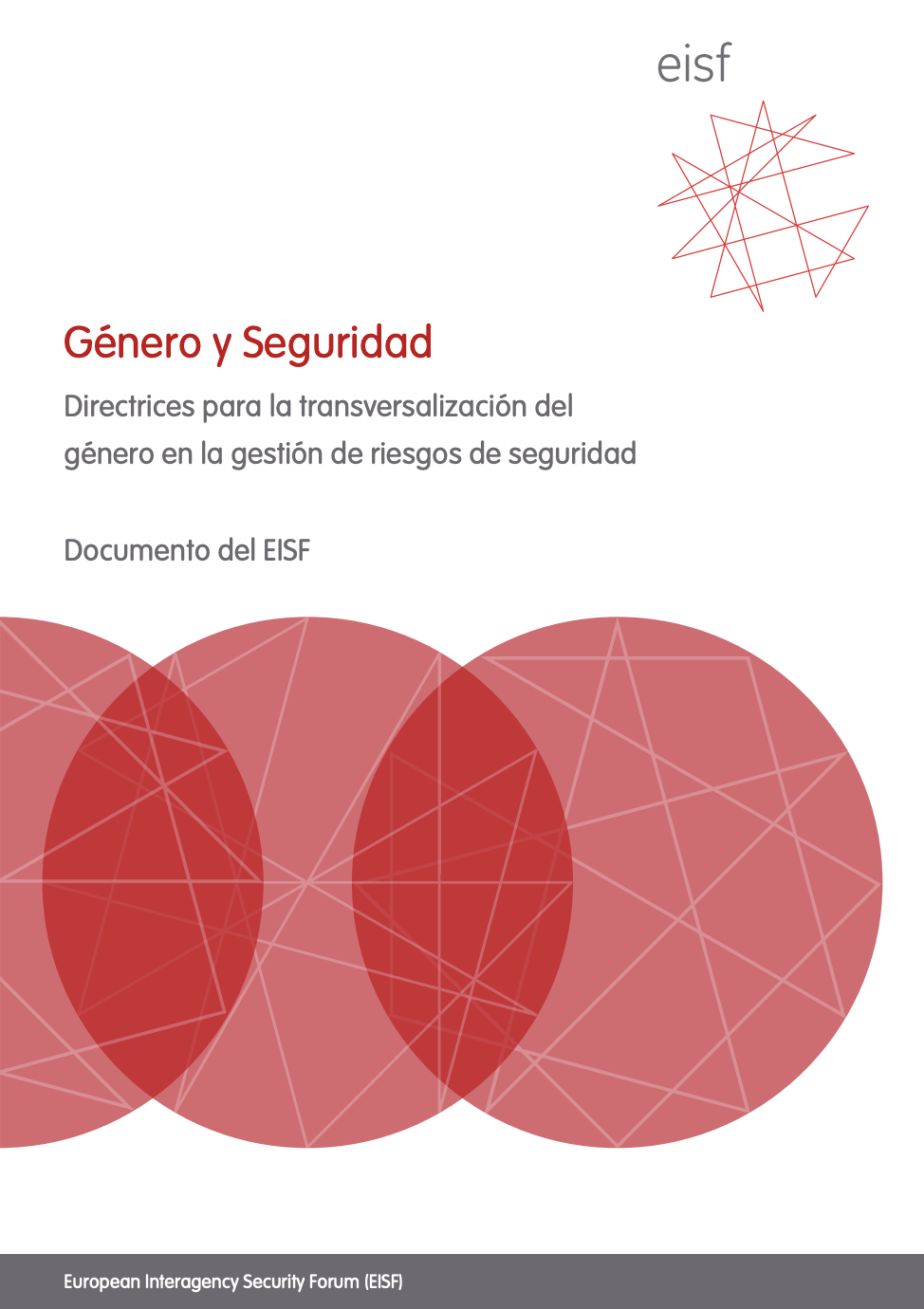
Género y Seguridad: Directrices para la transversalización del género en la gestión de riesgos de seguridad
Género y Seguridad: Directrices para la transversalización del género en la gestión de riesgos de seguridad propone directrices complementarias para que las ONG integren el género en la gestión de riesgos de seguridad, cubriendo un vacío en la literatura existente y proporcionando una orientación fundamental a nivel operativo.
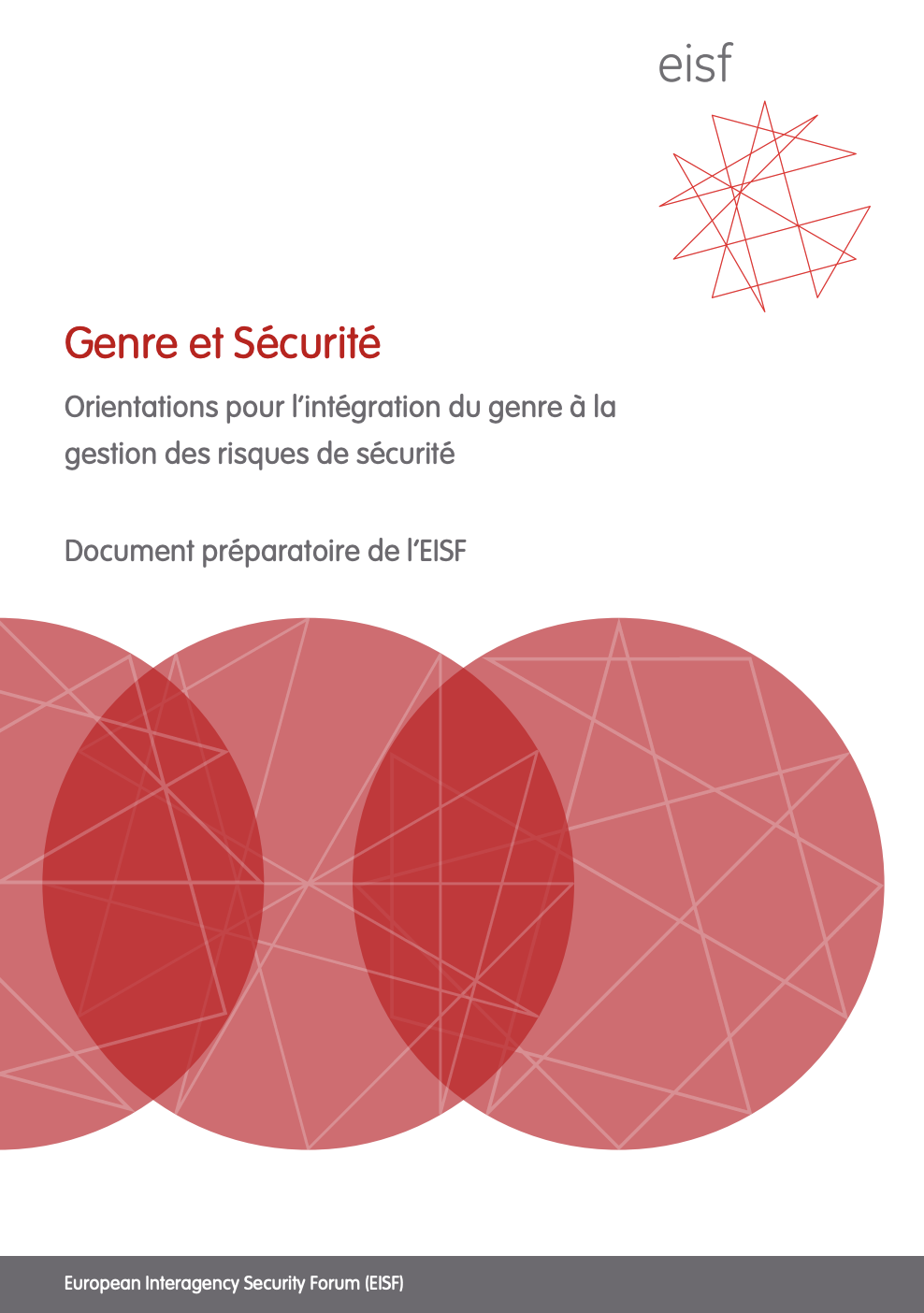
Genre et Sécurité : Orientations pour l’intégration du genre à la gestion des risques de sécurité
Genre et Sécurité : Orientations pour l’intégration du genre à la gestion des risques de sécurité propose aux ONGs des lignes directrices complémentaires pour intégrer la dimension genre à la gestion des risques de sécurité, afin de combler un vide dans les publications existantes et d’émettre des recommandations vitales au niveau opérationnel.
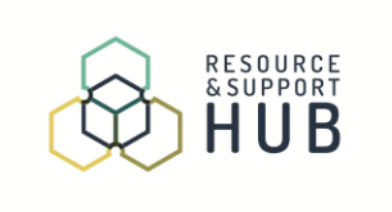
Good Governance for Safeguarding - Summary
This document, produced by the Resource and Support Hub, is a summary of the Bond-produced document Good Governance for Safeguarding: A Guide for UK NGO Boards.

Global Evidence Review of Sexual Exploitation and Abuse and Sexual Harassment in the Aid Sector
This report presents a review of what existing evidence tells us about Sexual Exploitation, Abuse and Sexual Harassment (SEAH) in the aid sector, and aims to provide a clear and more nuanced understanding of the evidence gaps.
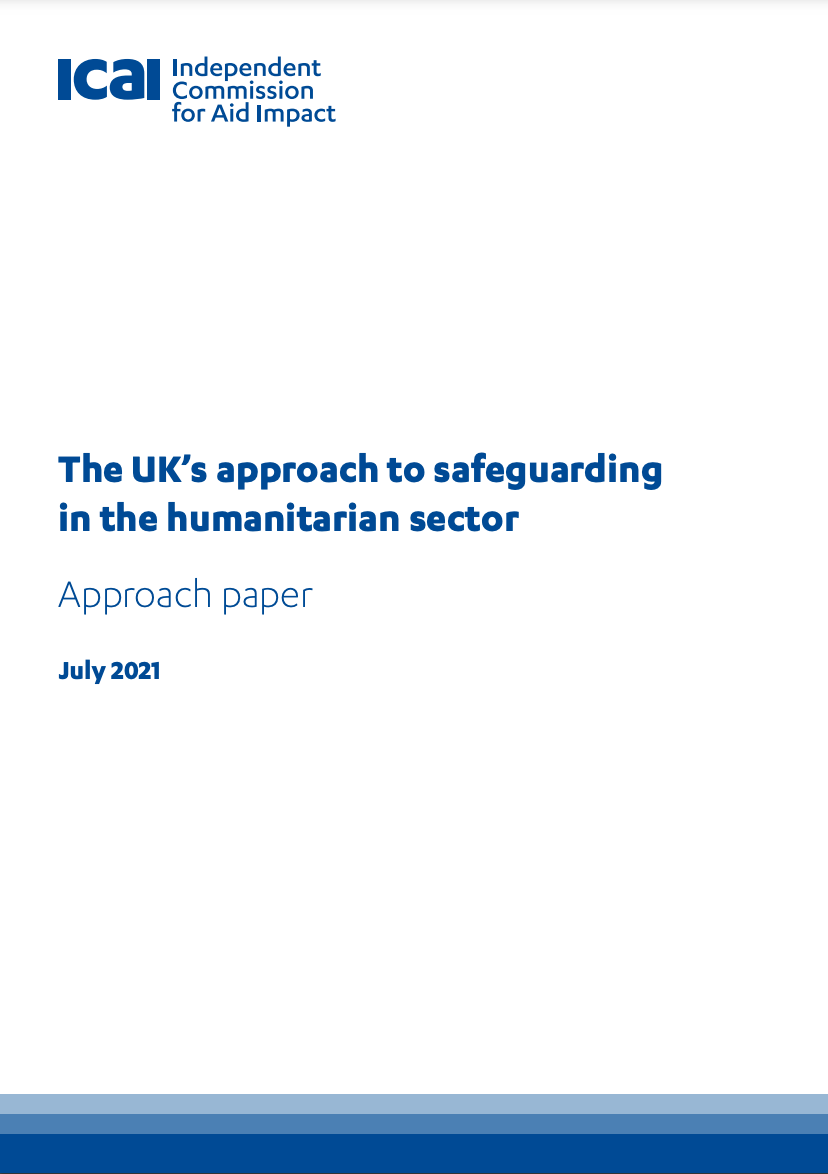
The UK’s approach to safeguarding in the humanitarian sector | Approach Paper
This approach paper sets out the purpose, scope and rationale of the UK government review, which will focus explicitly on the humanitarian aid sector and will examine the extent to which the UK government’s safeguarding efforts have been effective in preventing and responding to sexual exploitation and abuse (SEA) of affected populations, perpetrated by aid workers operating in humanitarian aid contexts.
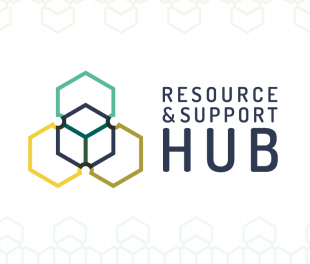
How to design and deliver safe and ethical monitoring, evaluation and research
This how-to-note provides detailed and practical guidance on safeguarding considerations for monitoring, evaluation (M&E) and research.

Safeguarding - How to Design and Deliver Safe Programmes
This how-to note details what safe programming is, what needs to be in place to support safe programming, the importance of community engagement for safe programming and how to integrate safeguarding throughout the programme cycle. This is a generic version that will be adapted for different contexts and translated in due course.

How to research Sexual Exploitation, Abuse and Harassment (SEAH) safely
This short how-to-note provides practical guidance for researchers or monitoring and evaluation (M&E) staff collecting data or researching Sexual Exploitation, Abuse and Harassment (SEAH) related subjects.
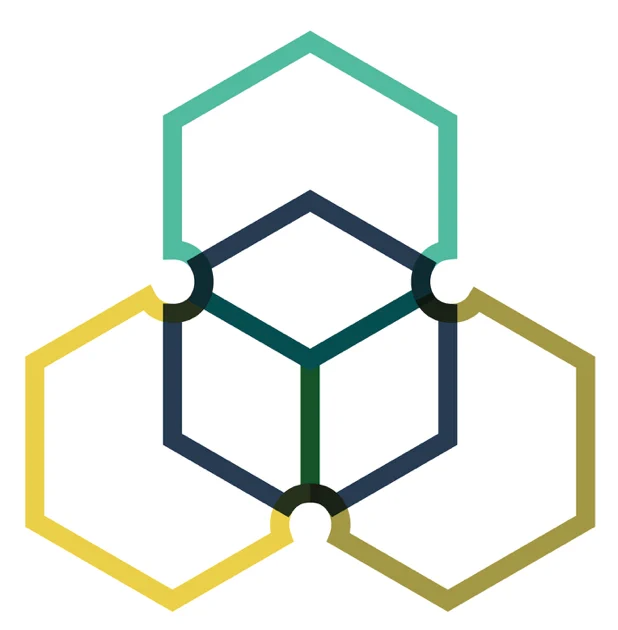
Safeguarding Essentials Package
The Resource & Support Hub has created a package containing “Safeguarding Essentials” for organisations in the humanitarian and development sectors who are starting their safeguarding work. It is designed with civil society organisations (CSOs) in mind and looks specifically at Sexual Exploitation, Abuse and Sexual Harassment (SEAH).

Can we trust the aid sector to keep people safe?
On this episode, the Safeguarding Resource and Support Hub reflect on challenges the aid sector has faced in keeping people safe and what it will take to make real improvements and restore trust. Nastasya Gecim talks to Hannah Clare, Head of PSEA & Safeguarding at Norwegian Refugee Council, and Dr. Faith Mwangi-Powell, the CEO of Girls not Brides. They make a powerful case for learning, partnerships and accountability.
